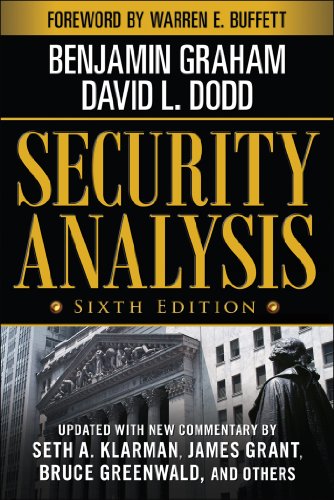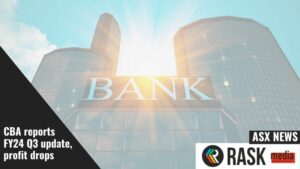Value investing is a simple formula: dividends received + earnings growth +- change in PE ratio.
Unlike passive investing, which we covered in another Summer Series episode on the Australian Investors Podcast, value investors are typically trying to predict both the earnings/profit growth but also any change to price multiples/sentiment (e.g. PE ratio getting more stretched). Value investing spent many decades being misperceived as ‘buy low, sell high’ (some people still believe this is the way value investing should be done).
But let me explain why this may be wrong…

The seminal work of Benjamin Graham in 1934 started value investing. Security Analysis is his most famous piece of literature on value investing.
Later, Warren Buffett said Security Analysis is “A road map for investing that I have now been following for 57 years”.
At the time, value investing was all about statistically identifying value using just the company’s financial statements — since there was so much information asymmetry (e.g. only Wall Street folk could quickly get their hands on financial statements) it only took a few hard-working investors to run basic numbers and identify mispricings (‘oh, look! This one has more cash than all liabilities put together – buy it!).
Ben Graham & David Dodd were the original super-value investors who taught a concentrated but extremely talented team of investors like Walter Shloss, Warren Buffett and a few others like William J. Ruane, Bert Olden & Irving Kahn.
They took all of Graham and made subtle tweaks to the style.
As Schloss would later remark, “Warren is right for Warren, but not for me.”
If you ask me, this derivative of pure statistical is the ‘second wave of value investing’.
The next wave, wave three, was first properly explored and popularised by Charlie Munger, a young lawyer who met Warren and would be the only person Warren would spend hours and hours on the phone talking to.
For many, Charlie pioneered the idea of intangible assets (brands matter, things you can’t touch can have value, etc.) and investing in “wonderful companies”.
“It’s far better to buy a wonderful company at a fair price than a fair company at a wonderful price.” – Warren Buffett.
We’ll cover Buffett’s investments in another episode of The Australian Investors Podcast Summer Series in January 2023. But for now, know that there’s a new wave of value investor — a fourth wave — who seems to be even more artful value investor.
Indeed, the modern-day value investor knows that the long-term value of a company cannot be identified by what’s already on this year’s balance sheet or income statement — because that’s already known to most investors, but also robots and quantitative funds.
Therefore, today’s value investor has to focus on using personal insights to form a more accurate mosaic of the future, as soon as possible. But they’re looking 5-10+ years into the future — a place where humans might still have an edge over robots digesting an infinite amount of financial data.
How to value a business
The most common (and sophisticated) modelling method is a discounted cash flow (DCF) analysis. A full template and 10+ hours of video is included in our Value Investor Program. We also have free version of how to use a DCF (see below).
A DCF is about forecasting free cash flow (FCF) into the future and bringing/discounting the expected cash flows into today’s dollars using an expected rate of return (e.g. WACC, or just an annual return you want).
A ‘high growth’ value investor might model a company 5-10 years into the future, seeking to more accurately forecast growth rates 5+ years old. Other methods of valuation include multiples, DDMs (banks), IRR, NPV, etc.
Value or growth?
There is no difference between “growth” and “value” investing. Some people say Wesfarmers Ltd (ASX: WES) is a “growth stock” because it has risen in price over 20 years and therefore it seems to be a company that grows fast. But with a dividend and 100+ years of history, others might call it a value stock. At the end of the day, we’re all modelling the same thing — so there is no meaningful difference between growth and value investing.
It’s just a label we apply to help us characterise the style or type of investing someone is pursuing. Everyone should consider both.
Warren Buffett did it.




